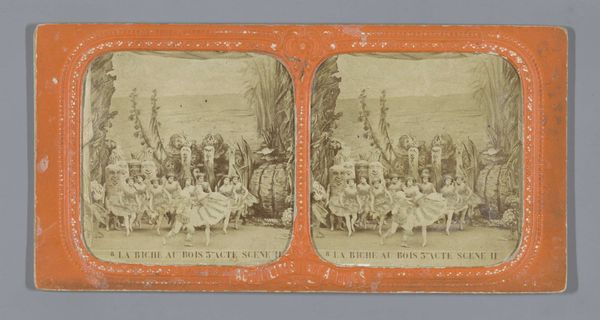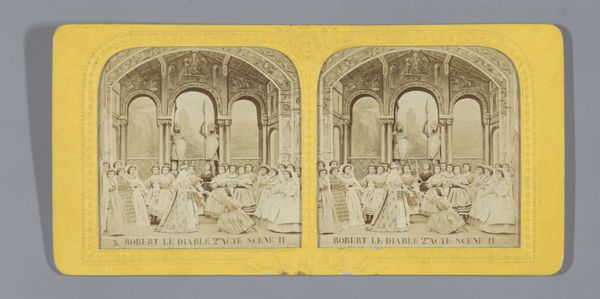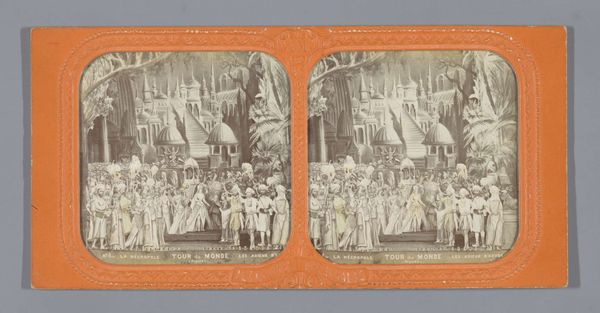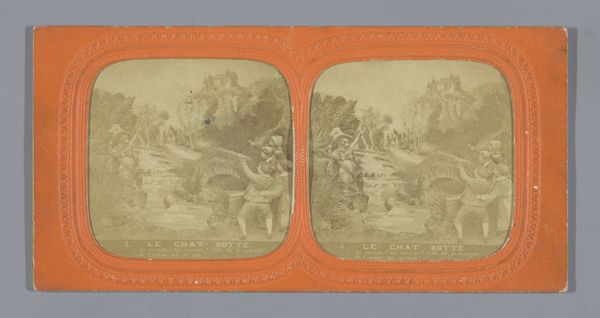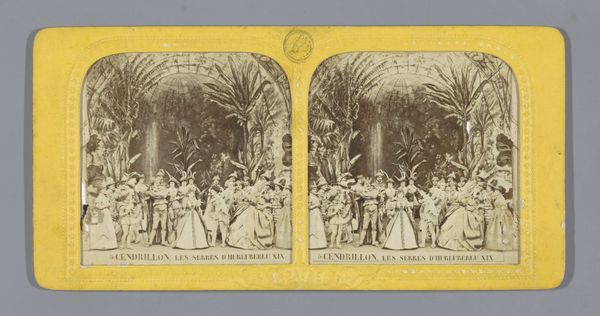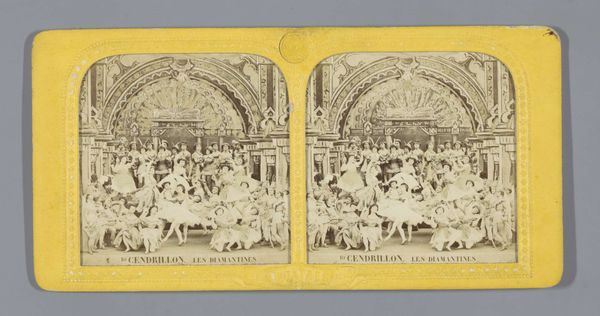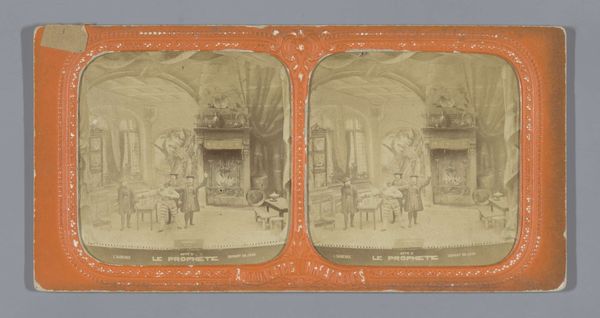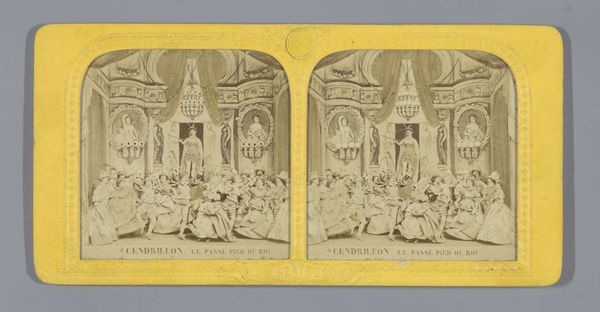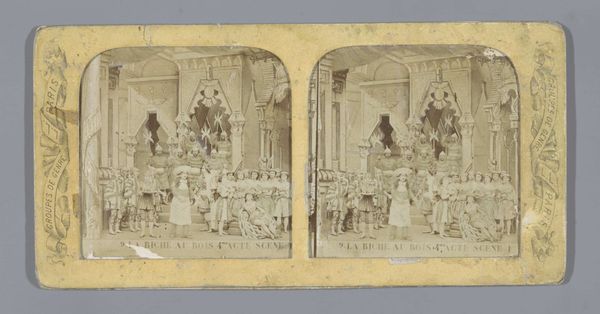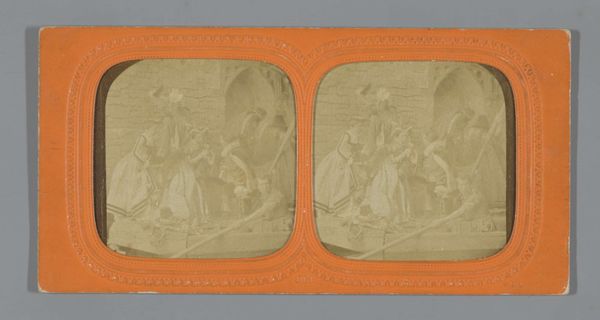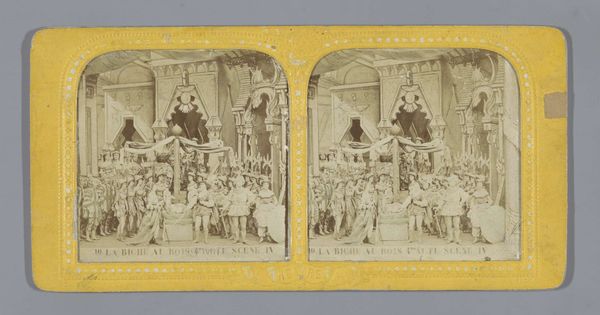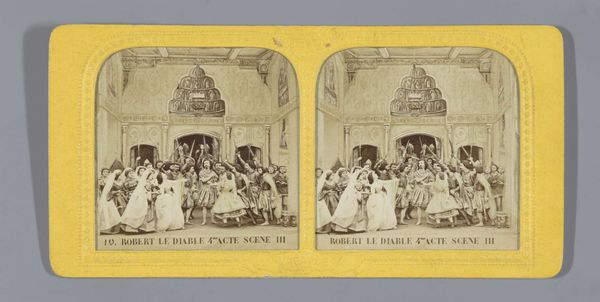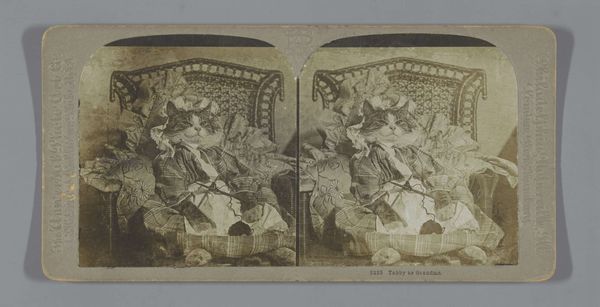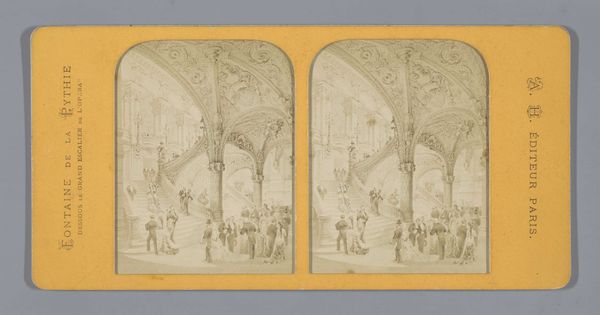
print, photography
#
aged paper
#
toned paper
#
homemade paper
#
paper non-digital material
#
pale palette
#
narrative-art
#
muted colour palette
# print
#
photography
#
orientalism
#
watercolour bleed
Dimensions: height 87 mm, width 177 mm
Copyright: Rijks Museum: Open Domain
This stereoscopic image, ‘Scene from Around the World in Eighty Days,’ is an early example of mass media, made by an anonymous photographer. It likely dates to the late 19th century, when Jules Verne’s adventure novel seized the public imagination. The photographic process itself is crucial here. Early photography streamlined image production, requiring some technical skill but little artistic training from its practitioners. This example is enhanced by the stereoscope format, which gives the scene a three-dimensional effect. The image shows a theatrical performance, restaging a scene from the novel. The mode of production is key. A large group of performers were needed, in addition to stagehands and other staff. All were contributing to the project of popular entertainment – something made possible through advances in print technology. It is important to remember that images like this were not ‘high art,’ yet they played a vital role in shaping the culture of their time. They challenge our assumptions about labor, artistic skill, and the definition of art itself.
Comments
No comments
Be the first to comment and join the conversation on the ultimate creative platform.
